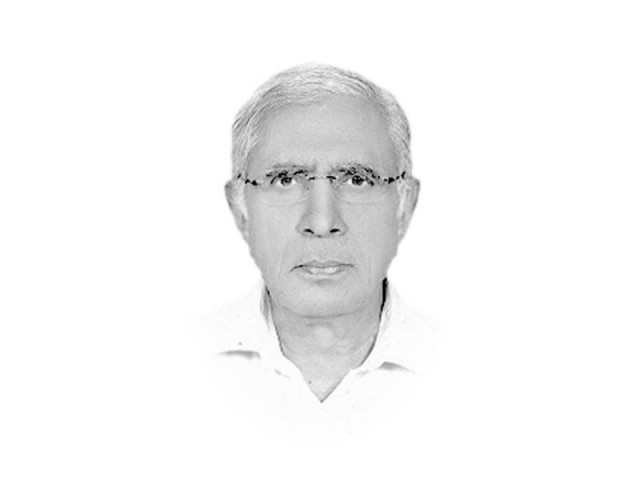Financial inclusion
Compared to other South Asian countries, Pakistan's performance has been pathetic, to say the least

The writer served as Executive Editor of The Express Tribune from 2009 to 2014
For the same reason and also because our financial sector has remained by and large in professionally sound hands, we have yet to see any of the private or public bank in the country keeling over. In fact, at times it was felt that the SBP had moved with much more alacrity than the health of the bank in crisis demanded, to either put it back in black or to have it merged with a more efficiently managed one.
But, either due to the fact that the finance ministry keeps breathing down its neck all the time, or because the private banking sector’s shenanigans keep it busy round the clock (or because of both), the SBP has not been able to pay attention to one of its basic roles — that of promoting banking activity nation-wide and extending it to the doorstep of each and every citizen of this country. The result of neglecting this very important function by the SBP has been highly troubling not only for the national economic health but also for the population at large.
According to the 2014 World Bank report, “The Global Findex Database 2014: Measuring Financial Inclusion around the World”, only 8.7 per cent of Pakistani adults have an account at a financial institution/bank. In the 2011 report, this figure was recorded at 10.3 per cent.
Compared to other South Asian countries, our performance has been pathetic, to say the least. In 2011, the account holders in the South Asia region were 32.3 per cent and the figure jumped to 45 per cent in 2014.
The Global Findex database provides comparable indicators showing how people around the world save, bor¬row, make payments and manage risk. The 2014 edition of the database reveals that 62 per cent of adults worldwide have an account at a bank or another type of financial institution, or with a mobile money provider.
Between 2011 and 2014, 700 million adults became account holders while the number of those without an account — the unbanked — dropped by 20 per cent to two billion. What drove this increase in account ownership was a growth in account penetration of 13 percentage points in developing economies and innovations in technology — particularly mobile money, which is helping to rapidly expand access to financial services in sub-Saharan Africa.
Along with these gains, the data also show that big opportunities remain to increase financial inclusion, especially among women and poor people. The private sector can play a pivotal role by shifting the payment of wages and transfers from cash into accounts. There are also large opportunities to spur greater use of accounts, allowing those who already have one to benefit more fully from financial inclusion. In developing economies, 1.3 billion adults with an account pay utility bills in cash, and more than half a billion pay school fees in cash. Digitising payments like these would enable account holders to make the payments in a way that is easier, more affordable, and more secure.
According to the report, financial inclusion has been broadly recognised as critical in reducing poverty and achieving inclusive economic growth. Studies show that when people participate in the financial system, they are better able to start and expand businesses, invest in education, manage risk and absorb financial shocks. Access to accounts and to savings and payment mechanisms increases savings, empow¬ers women and boosts productive investment and consumption. Access to credit also has positive effects on consumption — as well as on employment status and income and on some aspects of mental health and outlook.
It further claims that greater access to financial services for both individuals and firms may help reduce income inequality and accelerate economic growth. Financial inclusion, at its most basic level, starts with having a bank account. But it doesn’t stop there — only with regular use do people fully benefit from having an account. Both these outcomes can be difficult to achieve. Digitising payments can play an important part.
Published in The Express Tribune, September 23rd, 2015.
Like Opinion & Editorial on Facebook, follow @ETOpEd on Twitter to receive all updates on all our daily pieces.















COMMENTS
Comments are moderated and generally will be posted if they are on-topic and not abusive.
For more information, please see our Comments FAQ